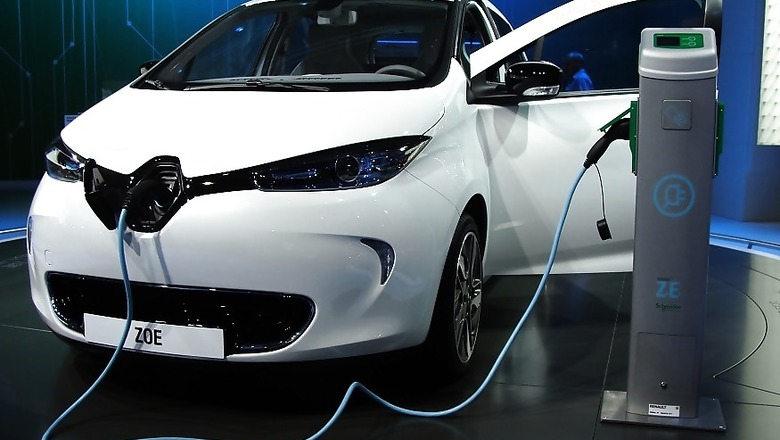
views
Renault Energy Services is a newly created entity, charged with developing smart grid projects, smart car charging systems, vehicle-to-grid interaction and the re-use and repurposing of used electric car batteries. Thanks to being one half of the Renault-Nissan Alliance, Renault is already at the forefront of electric cars and is the brand leader in terms of EV sales across Europe.
But even though the range of its cars has improved dramatically over the past year alone -- the latest Renault Zoe is the first affordable EV on sale in Europe to boast a 400km range -- there are still many hurdles to overcome before plug-in electric cars can truly drive into the mainstream.
One of the biggest is extending the charging infrastructure, according to the company chairman Carlos Ghosn. "[Range] anxiety is going to be eliminated only when we have a charging structure that is widespread and visible," he said, pointing out that people never worry about the range of their gasoline-powered cars. "Why would you when you have gasoline stations all over the place?"
And in Europe, while plenty of investment is being made to add charging stations, the current electricity grid isn't optimized for supporting a wholesale move from gasoline to EV mobility. IN the UK, for example, the national grid only runs at a 5% surplus, nowhere near enough to charge a 10-fold increase in electric cars.
This is where Renault's new company will come in. It will be looking at ways of maximizing this surplus and of taking energy from the grid (plus other sources including solar panels and renewables) at times of lowest demand and storing it for when it is needed.
Smart grid innovations could see cars charged at slower, more responsible rates based on the owner's needs, drawing energy when it is being generated by cleaner sources only and when there is a surplus of energy.
Likewise, fully charged EV cars not in use could in turn push energy back to the grid at peak times.
Meanwhile recycled car batteries could be installed in people's homes to draw energy from the grid at quiet times and then provide energy to the home during peak hours, to be used to capture and store energy created by solar panels.
Gilles Normand, SVP, Electric Vehicles, Renault said: "The creation of Renault Energy Services marks an important step forward. Investing in smart grids is key to both reinforcing the lead we enjoy in the European electric vehicle market and accelerating the EV industry's scale-up."



















Comments
0 comment